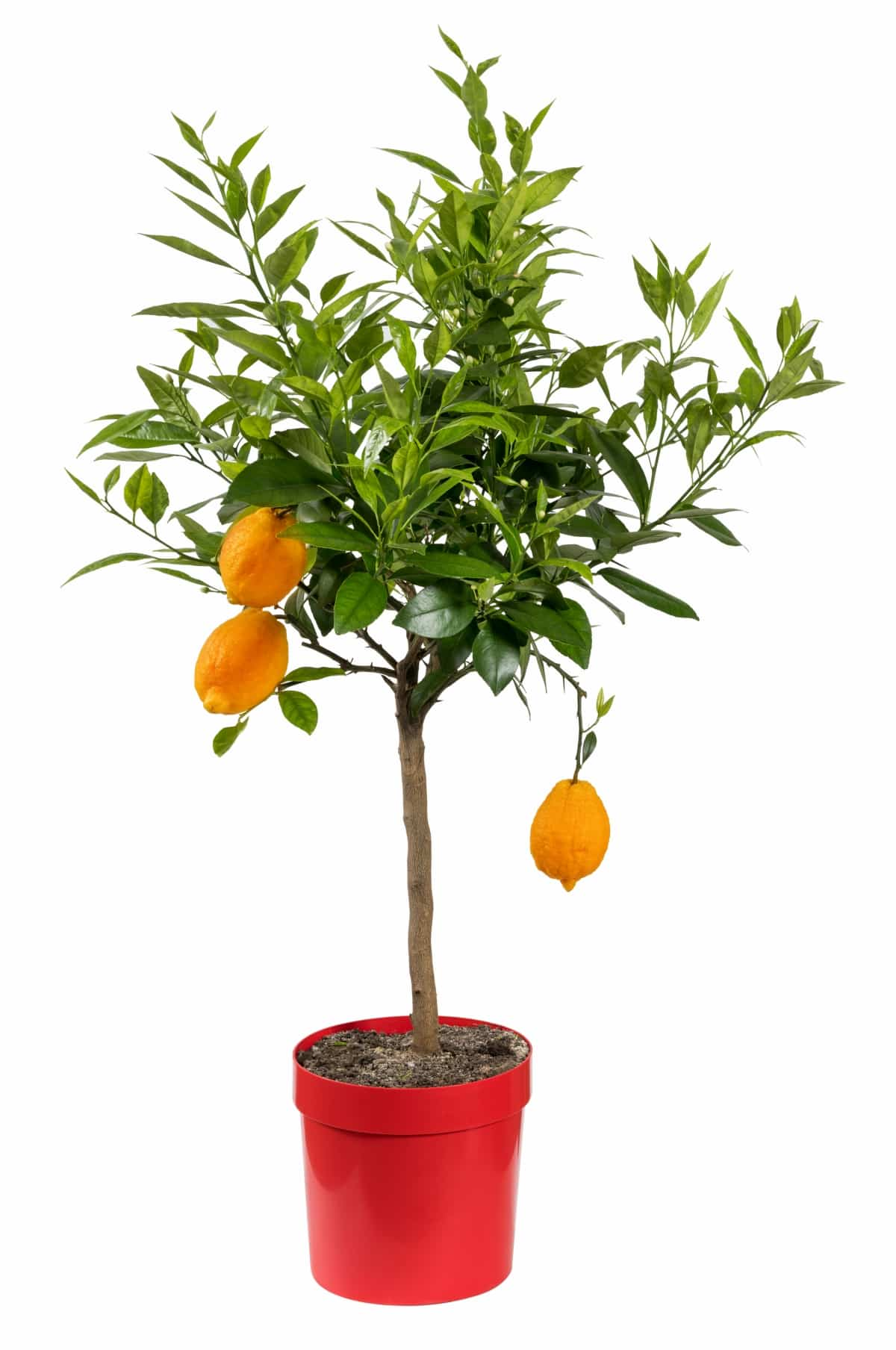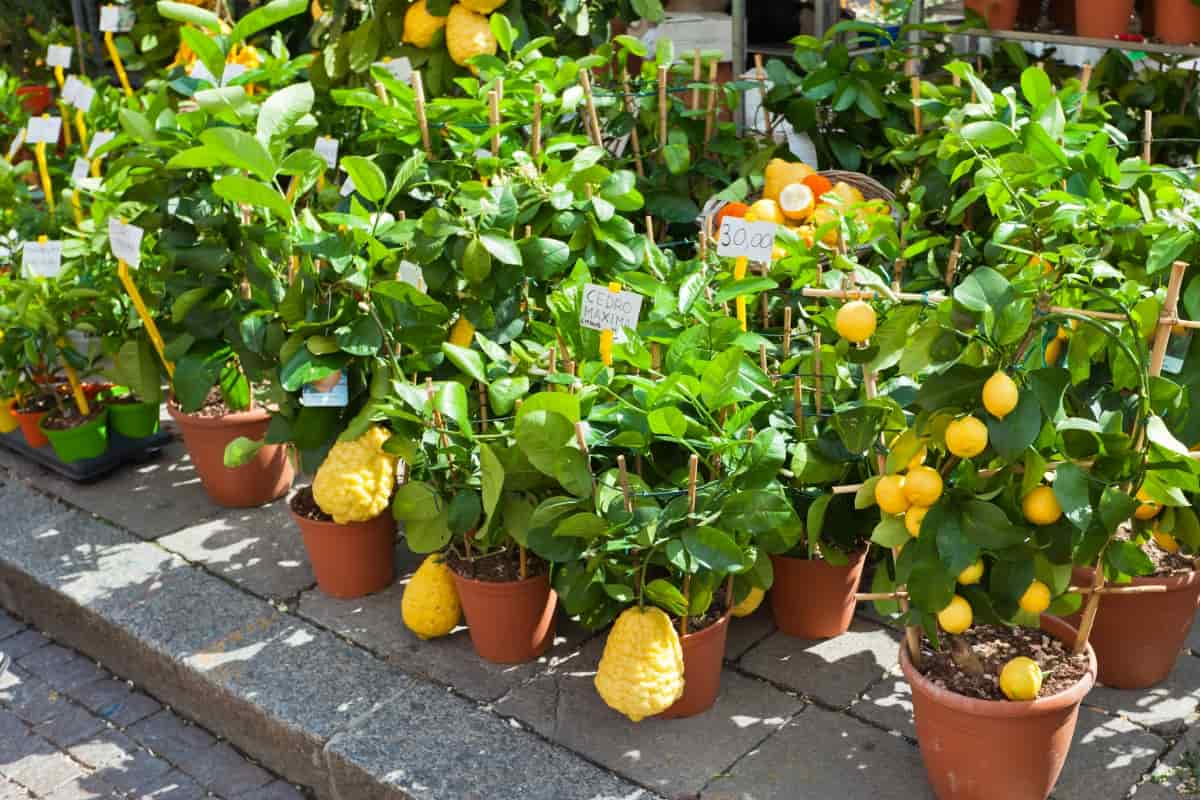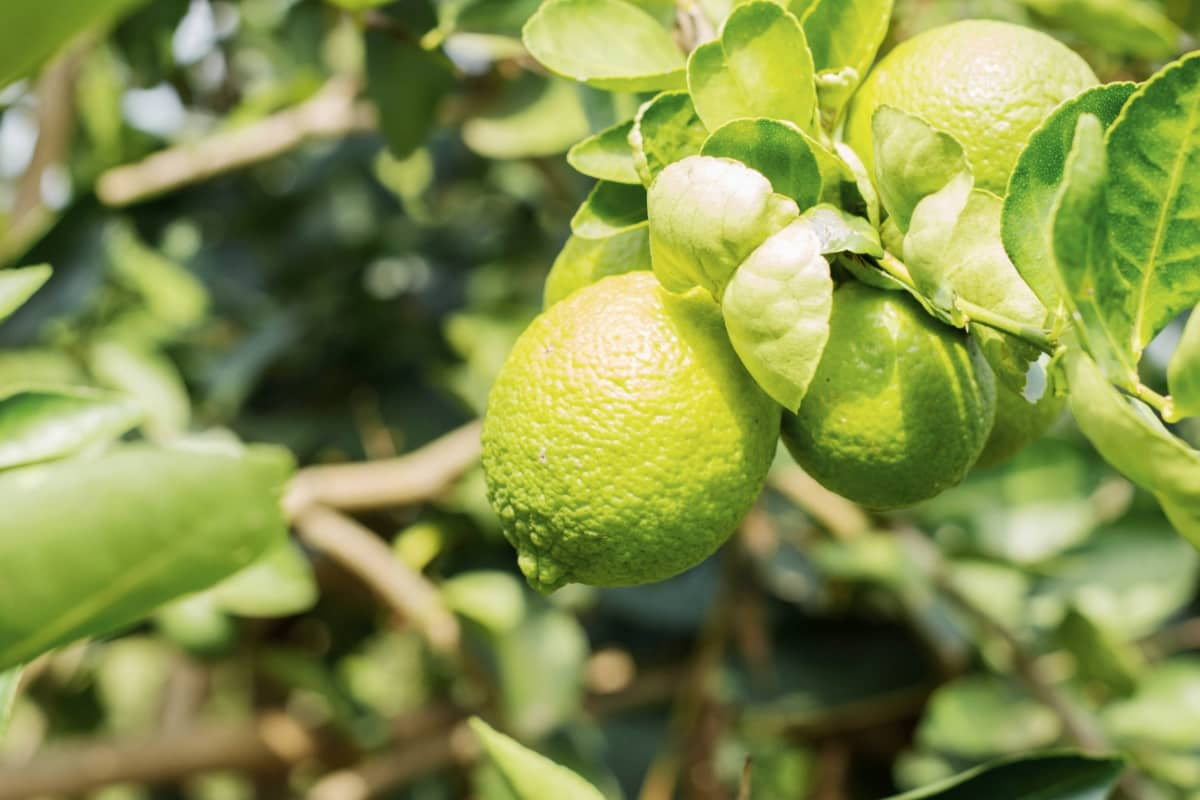Fertilizing potted lemon trees is essential for their growth and productivity. A well-nourished lemon tree produces an abundance of delicious fruits. When choosing a fertilizer, choose a balanced formula specifically designed for citrus trees. Feed your potted lemon tree every two to three months during the growing season.

Apply the fertilizer around the base of the tree and avoid direct contact with the trunk. Water the tree thoroughly after fertilizing to help the nutrients penetrate the soil. Regular fertilization will ensure healthy foliage, vibrant blooms, and a bountiful harvest.
Best Fertilizer for Lemons in Pots
Organic Fertilizers for Lemons in Pots: Nurturing Your Plants Naturally
Seaweed contains trace minerals, growth hormones, and beneficial microorganisms. A seaweed-based fertilizer promotes healthy root development, improves plant vigor, and increases resistance to diseases and pests. Liquid fertilizers can be applied around lemon trees by diluting them in water and then pouring the mixture around.
The manure of animals, such as chickens or cows, is another organic fertilizer that can be used. However, It is crucial to use well-aged or composted manure to avoid burning the plants. Manure provides nutrients and improves soil structure but should be used in moderation to prevent nutrient imbalances.
Natural Fertilizers for Lemons in Pots: For Environmentally-Friendly Options
Worm Castings: Adding worm castings to your lemon tree’s soil will increase its fertility, encourage root growth, and improve its overall health. A rich blend of nutrients is readily available to plants in the waste earthworms produce. Worm castings should be mixed into the potting soil or used as a top dressing around the tree’s base.
Epsom Salt: Natural minerals like Epsom salt, or magnesium sulfate, benefit lemon trees grown in pots. In addition to providing magnesium to plants, it also aids in producing chlorophyll. You can apply Epsom salt to the soil around the base of your lemon tree by dissolving it in water. As a result, magnesium deficiency will be prevented, and vibrant foliage and fruit will be produced.
Homemade Fertilizers for Lemons in Pots: DIY Solutions for Optimal Plant Health
Compost Tea: Making compost tea at home is an easy way to fertilize your plants with nutrients. Prepare compost tea by collecting organic matter such as kitchen scraps, leaves, and grass clippings. In a container filled with water, combine these materials. Allow the mixture to sit for a few days, stirring occasionally. After straining the liquid, dilute it with water and apply it to your lemon tree.
Coffee Grounds: Sprinkle the used coffee grounds around the base of your potted lemon tree, but keep them away from the trunk. Nitrogen allows your lemon tree to withstand pest infestations and diseases by promoting leafy growth and producing healthy foliage.
In case you missed it: How to Graft a Lemon Tree: Rootstock Used, Best Time to Graft, Techniques, and Methods

NPK Ratios and Their Importance in Selecting Fertilizers for Lemons in Pots
To choose the right fertilizer for lemon trees in pots, you need to consider the specific needs of each growth stage. A balanced NPK ratio may support fruit production in mature lemon trees, while young lemon trees need more nitrogen to promote leafy growth.
- Use a fertilizer with a higher content of nitrogen for young lemon trees, such as a 15-5-10 or 20-10-10 ratio. As a result, healthy foliage and strong roots will be developed.
- In contrast, mature lemon trees require a balanced NPK ratio, such as 10-10-10 or 12-12-12. Consequently, both foliage growth and fruit production will be supported.
Slow-Release Fertilizers: Enhancing Nutrient Availability for Lemons in Pots
Slow-release fertilizer formulated for citrus trees is the best choice. Slow-release fertilizers have the advantage of only needing to be applied once a year since they gradually release nutrients to the plant over the growing season. This makes slow-release fertilizers a great choice for busy people or those who want to “set it and forget it.” Slow-release fertilizers come in spikes that you insert into your plant’s soil. This spike is the perfect size for potted lemon trees and is specially formulated for citrus trees.
pH Levels and Fertilizer Selection for Lemons in Pots: For Balanced Soil Environment
The soil pH level directly affects the availability of nutrients to plants. To grow lemons, slightly acidic soil with a pH level range between 5.5 and 6.5 is best. Before planting, it is essential to test the pH of the soil. If you want to adjust the pH, you can use either acidic or alkaline amendments. If your soil is too acidic, lime can help raise the pH. In contrast, sulfur can lower the pH level if the soil is too alkaline. pH levels must be monitored regularly to ensure they remain within a desirable range.
It is equally important to choose the right fertilizer. The best fertilizer for lemon trees contains equal parts of nitrogen, phosphorus, and potassium. Nitrogen promotes leaf and stem growth, phosphorus aids in flower and fruit development, and potassium helps with overall plant health and disease resistance.
The Importance of Timing: When to Apply Fertilizer to Lemons in Pots
- A potted citrus tree should be fed monthly during the active growth period, usually in spring and summer.
- When a tree is dormant – during the winter months – do not fertilize it since it will not require many nutrients.
- If you live in a colder climate, move your citrus indoors, as frost can damage new growth. Citrus trees benefit from cold weather (above 40oF) as it promote flowering and fruit production.
- Once your tree bears fruit, reduce feedings during active and dormant seasons.
- You should begin active feedings in late winter and early spring when new growth begins. Potted citrus trees require less fertilizer and less water than planted citrus trees since they have less soil.
In case you missed it: Best Lemon Varieties to Grow in Your Garden

How to Apply Fertilizer to Lemons in Pots: Techniques for Maximum Effectiveness
There are different concentrations of fertilizers, so there are different guidelines for how much fertilizer to apply. Your lemon tree’s soil should be fertilized according to the instructions with the specific fertilizer you choose. It is important to remember that liquid fertilizers are usually concentrated and must be diluted with water. A potted lemon tree will also need less fertilizer than an in-ground specimen since the soil and nutrients are contained within its small confines.
When dispersing fertilizer, determine how far you should disperse it from the trunk based on the lemon tree’s height. Apply fertilizer around the tree trunk in a circle of 2 feet in diameter if the tree is 2 feet tall. The fertilizer should be applied in a 12-foot diameter around the tree trunk if the tree is 12 feet tall. By following these guidelines, you can ensure that all tree roots can access nutrients and that nutrient uptake is even and healthy.
Water-Soluble Fertilizer for Potted Lemon Trees
A balanced formula with equal nitrogen, phosphorus, and potassium is a common water-soluble fertilizer for potted lemon trees. It provides a well-rounded nutrient profile that promotes overall growth. Leafy growth is stimulated by nitrogen, root development is stimulated by phosphorus, and fruit production is enhanced by potassium.
For optimal plant growth, water-soluble fertilizers for potted lemon trees often contain secondary nutrients, micronutrients, and macronutrients. Among these are calcium, magnesium, iron, manganese, and zinc. While they are typically present in smaller quantities, these nutrients are vital in various plant processes.
Best Fertilizer Application Techniques for Lemons in Pots: Dos and Don’ts
Dos
- Apply fertilizer in stages: Throughout the growing season, apply the total amount recommended for your lemon tree multiple times. As a result, the tree will receive a steady supply of nutrients without being overburdened.
- Water before and after fertilizing: Ensure the soil is moist before applying fertilizer by thoroughly watering it.
- Fertilize during the growing season: During the warmer months, lemon trees grow actively. In spring, start fertilizing and continue until early fall. When the tree needs nutrients the most, this will provide them.
Don’ts
- Don’t fertilize during winter: During the winter, lemon trees go dormant, and their nutrient requirements decrease. Don’t fertilize during this time to prevent nutrient buildup and potential tree damage.
- Don’t apply fertilizer to dry soil: Fertilizer should always be applied after watering the soil. It is possible to burn the roots when fertilizing dry soil due to uneven distribution of nutrients.
In case you missed it: How to Treat Brown Spots on Lemon Tree Leaves Naturally: Causes, Fix With Effective Organic Home Remedies

Conclusion
In conclusion, selecting the best fertilizer for your lemon tree in pots is vital to its overall health and productivity. Understanding the NPK ratio and applying the fertilizer during the growing season correctly will ensure your lemon tree thrives and produces an abundance of delicious fruits.
- Feed Your Flock for Less: Top 10 Tips to Save on Chicken Feed
- Ultimate Guide to Ossabaw Island Hog: Breeding, Raising, Diet, and Care
- Hatching Answers: The Top 10 Reasons Your Chickens Aren’t Laying Eggs
- Eggs and Economics: Breaking Down the Cost of Raising Backyard Chickens
- Defend Your Greens: Proven Methods to Keep Iguanas Out of Your Garden
- Ultimate Guide to Cinnamon Queen Chicken: A Comprehensive Guide for Beginners
- Ultimate Guide to California Tan Chicken: Breeding, Raising, Diet, Egg-Production and Care
- Ultimate Guide to Marsh Daisy Chicken: Breeding, Raising, Diet, and Care
- 10 Types of Chicken Farming Businesses You Can Start for Profits